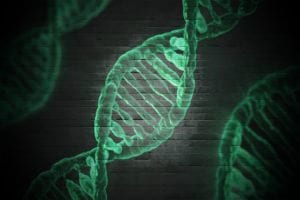On September 8, 2022, HCU Network America, a Patient Worthy partner organization, hosted a webinar program titled “Classical Homocystinuria: A Journey to Improve Outcomes Through Newborn Screening Methodology.” The webinar was focused on the importance of newborn screening in this illness as well as the need for improvement; studies suggest that around half of patients are missed with the newborn screening methods used in the US.
About Homocystinuria
Homocystinuria is a rare genetic disorder in which a deficiency of an enzyme called cystathionine beta synthase leads to inhibited metabolism of an amino acid called methionine. Deficiencies affecting folate and vitamins B6 and B12 can also cause symptoms to appear. The disorder can lead to major signs and symptoms affecting multiple body systems. These symptoms include various eye problems (myopia, glaucoma, optical atrophy), abnormal chest shape (pectus excavatum or carinatum), vascular disease (thrombosis, atheroma), psychiatric problems, flushed cheeks, seizures, and intellectual disability. Patients often have a thin, tall build, high arched feet, knock knees, and long limbs. There is no known cure for homocystinuria, with many interventions being symptomatic and supportive. Around half of patients appear to benefit from high doses of vitamin B6, and continue this supplementation for life. Other options include a diet low in sulfur and protein, cysteine and folic acid supplementation, and trimethylglycine. To learn more about homocystinuria, click here.
Newborn Screenings and HCU
The program addressed several different aspects of the issue of newborn screening in homocystinuria, such as:
- The current screening landscape for classical homocystinuria
- How the community can work together to improve outcomes
- Recommendations that can improve screening effectiveness
- The effects of delayed diagnosis on patients
Speakers for the program included:
- Danae Bartke, Executive Director, HCU Network America
- Marzia Pasquali, FACMG, Medical Director, Biochemical and Newborn Screening & Section Chief, Biochemical Genetics
- Justin Skeens, Caregiver to son Landon, living with the disease
Danae provided an overview of the efforts that HCU Network America has made in the past few years to help address the issue of newborn screening for classical homocystinuria. These efforts include developing a survey to collect data on patients missed by newborn screenings in 2018, meetings with newborn screenings labs and engagement with the CDC’s efforts to develop a revised newborn screening process for the disease in 2019, and the development of the HCU Newborn Screening Advisory Council in 2020, just to name a few.
If you would like to learn more about this subject and view the complete webinar, click here.








